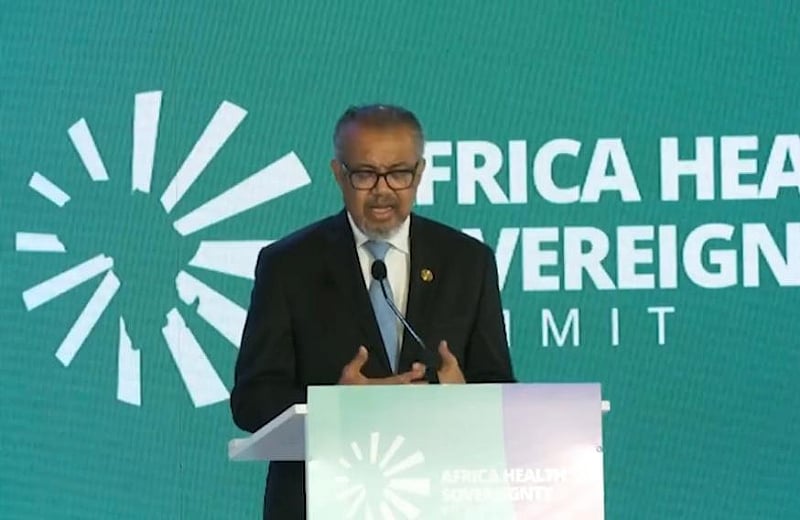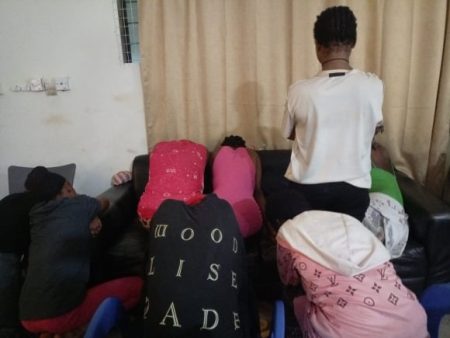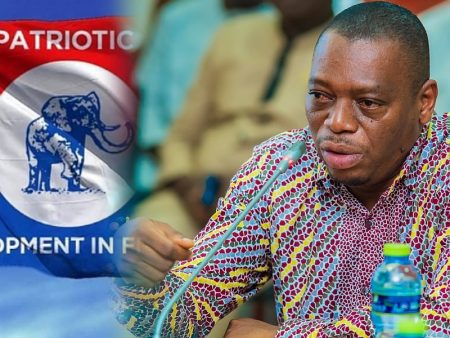Dr. Tedros Adhanom Ghebreyesus, the Director-General of the World Health Organization (WHO), delivered a compelling address at the Africa Health Sovereignty Summit in Accra, Ghana, advocating for a transformative approach to health financing on the continent. He emphasized the critical need for African governments to prioritize domestic resource mobilization, particularly through the implementation of health taxes on harmful products, as a cornerstone of building robust and self-sustaining health systems. Dr. Ghebreyesus underscored the profound impact that such taxes can have, not only in generating substantial revenue but also in promoting public health by discouraging the consumption of products detrimental to well-being. He highlighted the potential of a 50% increase in taxes on tobacco, alcohol, and sugary drinks to generate an estimated $3.7 trillion globally within five years, a significant sum that could be channeled towards strengthening health infrastructure and expanding access to essential services across the continent. This call for action comes at a crucial juncture as African nations strive to achieve health security and universal health coverage.
The Director-General’s message resonated strongly with the summit’s theme of “African Health Sovereignty in a Reimagined Global Health Governance Architecture.” He argued that true health sovereignty necessitates financial independence, empowering African countries to determine their own health priorities and allocate resources accordingly. Dr. Ghebreyesus positioned health taxes as a strategic lever for achieving this financial autonomy, enabling African nations to reduce their reliance on external funding and to shape health policies that reflect the specific needs and contexts of their populations. His assertion that bold decisions on domestic revenue generation are essential underscores the urgency of the situation and the need for proactive measures to secure sustainable financing for health systems across Africa.
Beyond the focus on domestic resource mobilization, Dr. Ghebreyesus also stressed the importance of broader global health reforms. He criticized the existing global health architecture as inequitable and called for a more democratic and accountable system. He emphasized WHO’s commitment to advocating for these reforms on various international platforms, including the G20, the United Nations, and the BRICS group. This multifaceted approach reflects the understanding that achieving health sovereignty in Africa requires both internal efforts to strengthen domestic health systems and external advocacy to reshape the global health landscape in a manner that is more just and responsive to the needs of developing nations.
The Africa Health Sovereignty Summit served as a pivotal platform for advancing these objectives. The summit brought together prominent leaders, health experts, and policymakers from across the continent to deliberate on strategies for achieving health sovereignty. Three key outcomes emerged from the summit: the launch of the SUSTAIN Initiative, the establishment of a Presidential High-Level Panel on global health governance, and the endorsement of the Accra Compact. The SUSTAIN Initiative is designed to provide technical support and capacity building to African countries in their efforts to implement health taxes and other innovative financing mechanisms. This initiative recognizes that while the concept of health taxes holds significant promise, effective implementation requires robust systems and technical expertise to ensure their success.
The formation of the Presidential High-Level Panel represents a significant step towards strengthening African leadership in global health governance. This panel will play a critical role in advocating for reforms to the existing global health architecture, pushing for greater representation and decision-making power for African countries. The panel’s mandate is to develop concrete proposals for transforming global health governance to ensure that it is more equitable, inclusive, and responsive to the needs of developing nations. Its work will be instrumental in shaping the future direction of global health cooperation and in ensuring that African voices are heard on the global stage.
The Accra Compact, endorsed by the summit participants, articulates a shared African vision for health sovereignty. This document outlines a set of principles and commitments for achieving self-reliance in health financing, strengthening health systems, and promoting equitable access to quality healthcare services for all Africans. The Accra Compact serves as a roadmap for collective action, providing a framework for collaboration among African nations and with international partners to advance the shared goal of health sovereignty. It signifies a commitment to prioritizing health as a fundamental human right and to investing in the necessary resources and infrastructure to achieve health for all. The summit and the resulting Accra Compact represent a significant milestone in Africa’s journey towards achieving health security and sustainable development. They send a powerful message to the global community that Africa is determined to take control of its health destiny and to build a future where all its citizens can enjoy the highest attainable standard of health.













